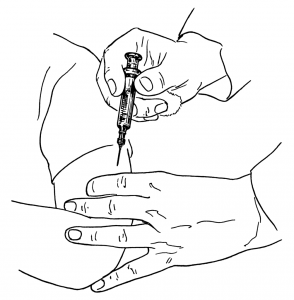 The lovely people at RiskAnalytics provide lists of domains known to serve malware at http://www.malwaredomains.com/. It makes these available in several formats including DNS zone files. They don’t even charge for the service which is, frankly, awesome!
The lovely people at RiskAnalytics provide lists of domains known to serve malware at http://www.malwaredomains.com/. It makes these available in several formats including DNS zone files. They don’t even charge for the service which is, frankly, awesome!
Many people configure their DNS servers so that they spoof the zone for each domain such that traffic is redirected to 127.0.0.1 (i.e. your own machine). This effectively stops hosts on that network from connecting to those zones and downloading unpleasant stuff. However, if you’re running a local webserver, say for development purposes, things can get confusing very quickly!
An alternative is using a DNS Response Policy Zone. This requires BIND version 9.8 or greater (or another DNS server that supports RPZ). RPZs are much more flexible than the approach above because they give us finer control over what we want the DNS server to tell the client. I have taken the approach that returning NXDOMAIN is the cleanest way of blocking traffic to these domains because a web browser will immediately give up on receiving that response. There’s no need to worry that a local webserver might interfere with domain blocking.

 Anyone who has been unfortunate enough to have dealings in the Family Court knows that ready access to justice is critically important when matters of marital property and child welfare are at stake. Access to justice is often talked about in terms of cost, and this is a serious obstacle to many especially since cuts to Legal Aid have started to bite the most vulnerable. However, access is also about accessibility: given a judgment from a court, can the average person understand it?
Anyone who has been unfortunate enough to have dealings in the Family Court knows that ready access to justice is critically important when matters of marital property and child welfare are at stake. Access to justice is often talked about in terms of cost, and this is a serious obstacle to many especially since cuts to Legal Aid have started to bite the most vulnerable. However, access is also about accessibility: given a judgment from a court, can the average person understand it? I recently found that ksh will deliberately crash if the last command in a script crashes. Other shells just set the appropriate exit code, but ksh sends itself the same signal that its child received. This can confuse the unwary (i.e. me) when trying to track down what crashed with
I recently found that ksh will deliberately crash if the last command in a script crashes. Other shells just set the appropriate exit code, but ksh sends itself the same signal that its child received. This can confuse the unwary (i.e. me) when trying to track down what crashed with 

 To observers in some foreign lands, the ban on audio and video recordings being made in British courts must seem like an affront to open justice. What is undoubtedly more bizarre is the position on note-taking by people in the public gallery. Although there is no statutory provision on this, there has long been a belief that members of the public are either banned from taking notes, or have to ask the judge’s permission before doing so. People have been castigated or even threatened with ‘contempt in the face of the court’ (a particularly serious form of contempt) for daring to take notes during a trial. Bona fide journalists seem to get better treatment.
To observers in some foreign lands, the ban on audio and video recordings being made in British courts must seem like an affront to open justice. What is undoubtedly more bizarre is the position on note-taking by people in the public gallery. Although there is no statutory provision on this, there has long been a belief that members of the public are either banned from taking notes, or have to ask the judge’s permission before doing so. People have been castigated or even threatened with ‘contempt in the face of the court’ (a particularly serious form of contempt) for daring to take notes during a trial. Bona fide journalists seem to get better treatment. When you last resigned from a job, when did you decide to leave? Can you identify a point in time, whether it was a flash of realisation or a slow dawning, when your relationship with your employer shifted from ‘attached’ to ‘it’s complicated’?
When you last resigned from a job, when did you decide to leave? Can you identify a point in time, whether it was a flash of realisation or a slow dawning, when your relationship with your employer shifted from ‘attached’ to ‘it’s complicated’?

